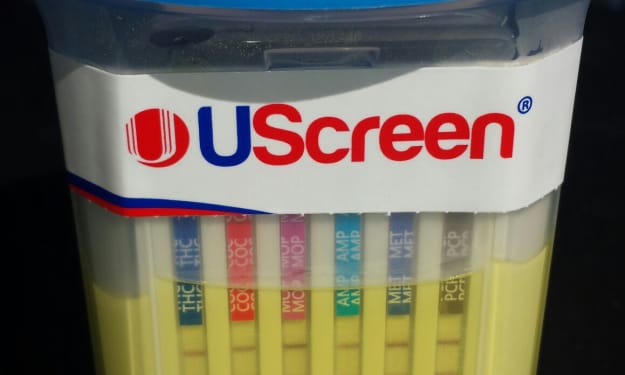Normy and the Step-Addict
Co-parenting with an Addict in the Family

So you find yourself in a blended family with stepchildren, some who are grown up. By no fault of your own, one of the stepchildren happens to become a drug addict. You and your partner are non-drug users, not alcoholics and never have been. You are both "Normies" (normal people who do not alter their state of being by getting high or drunk all the time, preferring to mentally keep it normal).
Yet here you are dealing with all the stress and strife that impacts your family because someone you love has become an active addict. You may find yourself getting "judgy" of the addict and your partner. Secretly having those thoughts, "How did I get stuck with this PFU (Professional Fuck Up) who cannot seem to have a normal life, keep a job, stay clean and sober, stay out of trouble?!?!?!" You look at your partner sleeping in bed while you lay awake worrying where is this kid out on the streets (who is now grown up and an addict)? How can your partner just sleep? What did THEY do to deserve having a child that is an addict? Why am I stuck dealing with this just because I love them?
Then at three in the morning the clarity comes. Now imagine, it isn't them, it is YOU. It isn't your stepchild, it is YOUR child that you brought into the relationship. No one asks to become an addict and by extension, no one asks to become the parent of an addict. So keeping that in mind, you realize you are thankful your partner can sleep tonight and isn't laying awake worrying. That doesn't help. You are thankful you have each other to encourage and support each other as the family goes through the journey on the hard road of addiction that you are all being dragged down because a family member became an addict.
Be kind to each other. Be kind to the addict in your family (without enabling them)... which is a balancing skill to learn.
Know the boundaries of caring versus enabling. Here is my short reminder No-No list. These are tips to keep in mind when you want to help the addict but aren't sure what to do.
NO-NO List for Not Enabling:
- No, NEVER give money to the addict.
- No, don't believe the story, excuse or reasons they give you to make you want to help them or make you feel guilty. Verify every thing when you can.
- No, don't buy their cigarettes. That is just another addiction.
- No, don't put the family at risk and let the active addict stay in your home—they will steal from you and they will lie to you... it is what the average active addict has to do to feed their addiction.
- No, do not blame yourself or your partner or even the addict. The addict must choose to get professional help. The addict is to blame for their drug abuse, however they are not to blame for YOU choosing to waste time worrying, losing sleep or trying to go through this alone.
- No, never make excuses or lie to cover the bad behavior of the addict.
- No, don't act out of fear to save the addict. Addiction causes scary events, those are consequences of bad choices. The addict must face their consequences. Do not interfere with police doing their job, do not interfere with consequences for the addict. It might be the very thing that causes them to seek help and get clean and sober.
- No resenting the addict or your partner. You will just end up feeling angry or hurt. Save your energy to encourage and support the family.
- No, don't try to cope with this trauma alone. Go to a group support meeting for parents of addicts (or) speak to a licensed counselor (or) read on addiction and enabling. Knowing will help with the No-No's. The groups like Al-Anon and Nar-Anon, are wonderful places to get clarity and get a grip. Being heard with compassion and empathy does help with healing.
- No, do not give up HOPE. As long as the addict is alive there is HOPE that someday they will choose to get help and get clean.
About the Creator
Sarah Seas
Mother of an Addict, Blogger, Author and Professional Speaker. Board Member of a women in crisis organization, helping addicts and their children to a better quality of life.






Comments
There are no comments for this story
Be the first to respond and start the conversation.